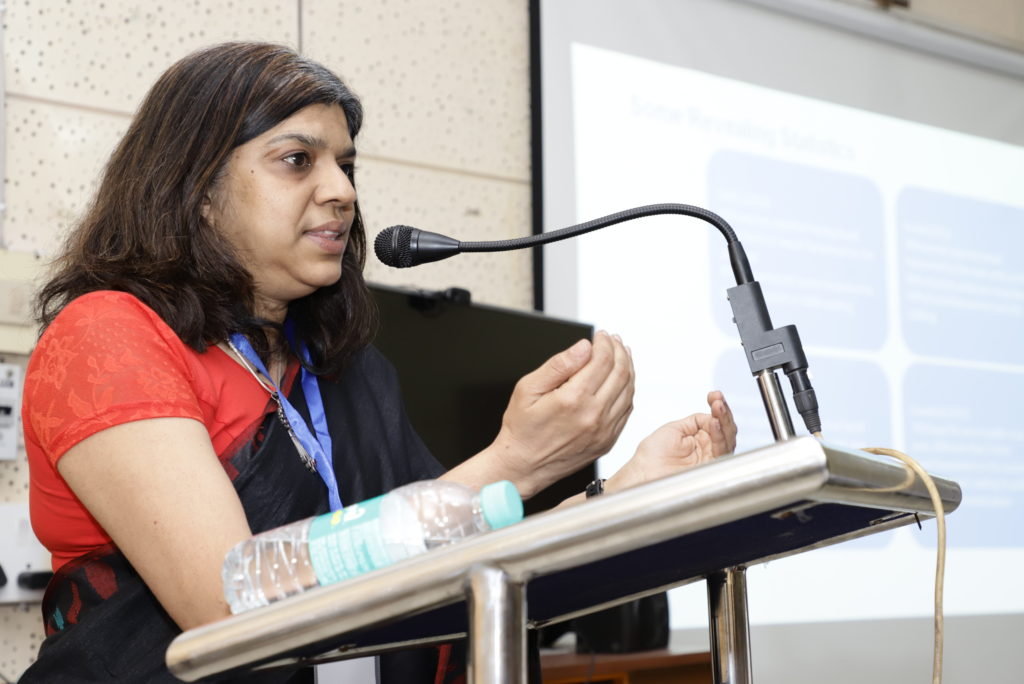
Dr. Kalpana Viswanath, Founder and CEO, Safetipin shared her insights on the importance of conducting a Safety Audit for cities at a WISCOMP workshop with the senior management team, faculty members and students of Cotton University, Guwahati in March 2019. Viswanath explained how women access public spaces differently than men, and how public spaces could be made more accessible to women.
Referring to various studies on high levels of sexual harassment against women in public spaces, Viswanath highlighted the need to understand this harassment as exclusion of women from public places. This exclusion is mediated by both the experience of violence and the fear of experience of violence. This fear is a reflection of who is perceived as having access to the city. She explained that the lack of safety for women in public spaces has a massive impact on women’s lives, and foregrounded the underlying ‘controlling mechanisms’ that determine women’s mobility in public spaces. Viswanath argued, it is this ‘fear’ that is a more powerful ‘controlling mechanism’ than the violence itself. Therefore, Viswanath explained urban safety as freedom from violence and fear of violence, and the unchallenged right to the city for all, irrespective of gender.
Key question that follows is this: how can one make public spaces accessible to women? Sharing an incident, Vishwanath explained that merely advertising a preference for a female candidate for a job does not ensure greater participation of women in the workplace. There is a need to create an environment that contributes towards sustaining women’s active participation in the public sphere.
One such way is by ensuring clean, safe, accessible, and affordable toilets for women. Additionally, it is important to address the specific needs of vulnerable groups, such as women with disabilities, young girls, and women from lower income groups, among others. This is because not all women experience the city in the same manner. Further, existing social and physical infrastructure would need to be improved, keeping in mind the needs of women. It is towards this that Viswanath’s organisation, Safetipin, works. She highlighted the important role played by institutions in making public spaces more inclusive of women’s needs. This would include ensuring basic services (like sanitation and water) and providing spaces for play and leisure (which is otherwise not a privilege that is offered to women).
Vishwanath asserted that the right to the city should not be understood in the context of the human rights framework. Borrowing from Henri Lefebvre’s work, she foregrounded the idea that the right to the city suggests that everyone should have the right to define the kind of city that they wish to inhabit. It goes beyond the right to the services of the city, to include women’s rights, so that women may be free to ask for what they want from their cities: access, safety, hygiene, mobility, and most importantly, freedom from both violence and the fear of violence.
To know more about Dr. Kalpana Viswanath’s work, visit www.safetipin.com.
